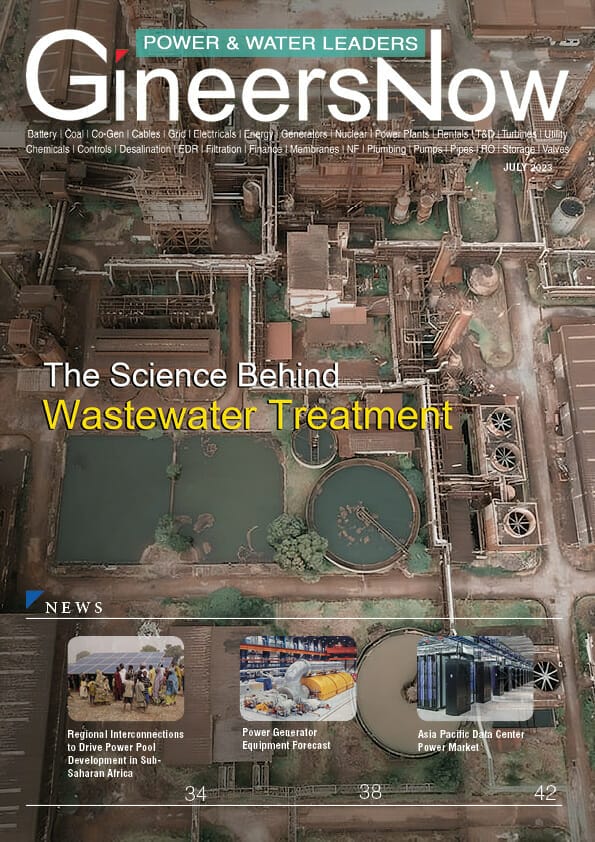There are many different types of water filters on the market these days. It can be hard to decide which one is right for you. Here are the different types of water purifiers to help you make a decision.
Water filters are an important part of any water filtration system. There are many different types of water filters, each with its own advantages and disadvantages. The five most common types of water filters are reverse osmosis, activated carbon, ultraviolet, distillation, and ion exchange.
What are water filters?
Water filters are devices that remove impurities from water by means of a physical barrier, chemical process, or biological process. Water filters are used to purify water for drinking, irrigation, industrial use, and swimming. There are a variety of different types of water filters available on the market today.
In this article, we will be discussing home or kitchen water filter devices that remove impurities from water by means of a physical barrier, chemical process, or biological process. Home water filters can be used to remove particulate matter such as dust, pollen, mold spores, and bacteria from the air; or unwanted dissolved minerals, organic compounds, and biological contaminants from water. There are many different types and configurations of water filters available on the market today.
How do water filters work?
Water filters are devices that purify water by removing impurities from it. There are different types of water filters, and each type works in a different way.
The most common type of water filter is the activated carbon filter. This type of filter works by trapping impurities in the pores of the carbon. As water passes through the carbon, the impurities are trapped, and the water is purified.
Another type of water filter is the reverse osmosis filter. This type of filter uses a semipermeable membrane to remove impurities from water. The semipermeable membrane allows water molecules to pass through but traps larger impurities such as salts and sugars.
There are several types of water filters, and each one has its own pros and cons. Water filters are an important part of many people’s lives. They help to purify water and make it safe to drink.
Why water filters are important?
Water filters play an important role in our daily lives. They remove impurities from our water, making it safer to drink. Water filters also help improve the taste of our water and can even remove harmful chemicals.
Water filters are an important part of keeping us healthy. They remove contaminants from our water that can cause disease. Water filters also help reduce the risk of cancer by removing carcinogens from our water supply.
Water filters are an important way to ensure that we have clean, safe water to drink. By removing impurities and contaminants, water filters help us maintain our health and well-being.
There are several types of water filters, and each one has its own merits.
What are the top five different types of water filters?
Activated carbon
Activated carbon is a type of carbon that has been treated to have a very high level of porosity. This means that it has a large surface area, which makes it ideal for filtering water. When water passes through activated carbon, impurities are adsorbed onto the surface of the carbon, leaving the water clean and safe to drink.
If you are concerned about the quality of your drinking water, installing an activated carbon filter is a great way to ensure that you and your family are getting clean, safe water to drink.
What are the types of impurities that activated carbon water filter removes?
There are three main types of impurities that an activated carbon water filter can remove. These include organic compounds, chlorine, and lead.
Organic compounds are typically removed through a process called adsorption, where the molecules of the compound bind to the surface of the activated carbon. Chlorine is usually removed by process of absorption, where the chlorine molecules bind to the surface of the activated carbon. Lead is removed by process of chelation, where the lead molecules bind to the surface of the activated carbon and are then flushed out of the system.
Ultraviolet
Water filter ultraviolet is a system that uses light to disinfect water. It is an alternative to using chemicals to purify water. Ultraviolet light kills bacteria by damaging their DNA. The UV rays do not remove particles from the water, so the water must be filtered before it is treated with UV light.
What are the types of impurities that the ultraviolet filter removes?
There are many types of impurities that the ultraviolet filter removes, including bacteria, viruses, and protozoa. The filter also removes organic matter, such as leaves and twigs, and inorganic matter, such as sand and silt. Ultraviolet light kills bacteria, viruses, and protozoa, and the filters remove the organic and inorganic matter.
Distillation
Water filter distillation is a process of filtering water through a semipermeable membrane. The filtered water is then boiled, and the steam is condensed back into the water. This process removes impurities from the water, including dissolved minerals, bacteria, and viruses.
What are the types of impurities that the distillation filter removes?
When it comes to impurities, there are three different types that the distillation filter can remove. The first type is physical impurities, which are usually removed by pre-filtering the liquid before it goes into the distillation unit. The second type is chemical impurities, which can be removed by using a chemical absorption process. The third type is biological impurities, which are usually removed by using a sterilization process.
Ion exchange
Water filter ion exchange is a process in which ions are exchanged between a water solution and a solid. This process can be used to remove impurities from water, as well as to purify water for drinking.
Ion exchange is based on the principle that like charges repel, and opposites attract. In the case of water filter ion exchange, positively charged ions in the water are attracted to the negative charge of the filter material. This causes the ions to be exchanged between the two materials.
The process of water filter ion exchange is an effective way to remove impurities from water. It can also be used to purify water for drinking.
What are the types of impurities that the ion exchange filter removes?
There are many types of impurities that an ion exchange filter can remove, including dissolved minerals, heavy metals, and organic compounds. Dissolved minerals, such as calcium and magnesium, are common in water sources such as rivers and lakes. Heavy metals, such as lead and copper, can be found in both natural water sources and artificially contaminated water. Organic compounds, such as pesticides and herbicides, can also contaminate water supplies.
Pitcher filters
A water filter is a device that is used to remove impurities from water by means of a physical barrier, chemical process, or biological process. Pitcher filters are a type of water filter that is typically placed in a pitcher and used to filter water before it is consumed.
Pitcher filters typically use one or more types of filters to remove impurities from water. The most common type of filter used in pitcher filters is an activated carbon filter. Activated carbon filters work by adsorbing impurities onto the surface of the carbon particles. These impurities are then removed from the water when the pitcher filter is flushed with clean water.
Pitcher filters can be an effective way to remove impurities from drinking water. However, it is important to note that they will not remove all contaminants from water. For example, pitcher filters will not remove viruses or bacteria from water.
What are the types of impurities that the pitcher filter removes?
There are many types of impurities that the pitcher filter removes. The most common type is sediment, which can be found in both surface and groundwater. Other common types of impurities include chlorine, lead, and bacteria. The pitcher filter is designed to remove these impurities from water, making it safer to drink.
Under-sink filters
An under-sink water filter is a type of point-of-use (POU) water filtration system that is installed under the kitchen sink to provide filtered water. Under-sink filters are usually connected to the cold water line and can be used with both well water and municipally treated water.
What are the types of impurities that the under-sink filter removes?
Under-sink filters typically remove sediment, chlorine, chloramine, lead, cysts, VOCs, and select chemicals from drinking water. Some units are designed to improve the taste and smell of water, while others provide additional filtration for specific contaminants such as fluoride or arsenic.
Faucet-mounted filters
Faucet-mounted filters are devices that attach to your faucet and remove impurities from your water. They are a type of water filtration system that can improve the quality of your water by removing contaminants such as lead, chlorine, and bacteria.
Faucet-mounted filters are a convenient and affordable way to filter your water, and they can be used in both homes and businesses. There are many different brands and models of faucet-mounted filters available on the market, so you can choose the one that best meets your needs.
If you’re looking for a way to improve the quality of your water, a faucet-mounted filter is a great option. These devices are easy to install and use, and they can provide you with clean, safe water.
What are the types of impurities that a Faucet-mounted filter removes
The most common type of impurities that a faucet-mounted filter removes are sediment, chlorine, and lead.
Sediment is the largest type of particle that can be found in water and includes things like dirt, sand, and rust. Chlorine is a gas that is added to municipal water supplies to kill bacteria, but it can also give water an unpleasant taste and smell. Lead is a heavy metal that can leach into water from old pipes or solders used in plumbing fixtures.
Faucet-mounted filters vary in their ability to remove different types of impurities, so it’s important to choose one that’s right for your needs.
Filtered water bottles
As the world becomes more health conscious, people are looking for ways to cut down on their sugar and calorie intake. One way to do this is by drinking more water. But not all water is effective in removing water impurities and contaminants.
Filtered water bottles remove impurities and toxins from your water, making it healthier for you to drink.
There are many different types of filtered water bottles on the market, so it can be hard to know which one to choose. The most important thing to look for is a bottle that has a good filter. A good filter will remove contaminants like lead, chlorine, and bacteria from your water.
Another thing to consider is the size of the bottle. If you plan on taking your bottle with you on the go, you’ll want one that’s easy to carry.
Refrigerator filters
A water filter is a device that removes impurities from water by means of a physical barrier, chemical process, or biological process. Common types of water filters include activated carbon filters, reverse osmosis filters, ultraviolet sterilizers, and mechanical filters.
Refrigerator filters are designed to remove contaminants from the water used to fill ice cubes and dispense drinking water. The most common type of refrigerator filter is the activated carbon filter. Activated carbon filters remove impurities from water by adsorption, a process in which contaminants are attracted to the surface of the filter material.
What are the types of impurities that refrigerator filter removes?
When it comes to water filters, there are a lot of different options on the market. But when it comes to refrigerator filters, there are only a few different types. The most common type of refrigerator filter is the carbon filter. Carbon filters are great at removing impurities from water, such as chlorine and lead. They also help to remove bad taste and odors from water.
Another type of refrigerator filter is the reverse osmosis filter. Reverse osmosis filters are even better at removing impurities from water than carbon filters. They can remove up to 99% of all impurities, including dissolved minerals, bacteria, and viruses. However, reverse osmosis filters can be more expensive than carbon filters.
The last type of refrigerator filter is the ultraviolet (UV) light filter. UV light filters use ultraviolet light to kill bacteria and viruses in water.

The benefits of using a water filter for your refrigerator
If you are looking for a way to improve the quality of your water, you may want to consider installing a water filter for your refrigerator. There are many benefits to using a water filter, including:
1. Filtered water tastes better.
2. Filtered water is free of contaminants that can cause health problems.
3. A water filter can extend the life of your refrigerator by preventing scale buildup from hard water.
4. Filtered water is more convenient than buying bottled water.
5. A water filter can save you money in the long run by reducing the need for repairs or replacement parts for your refrigerator.

The types of water filters available for refrigerators
There are many types of water filters available for refrigerators. The most common type is the inline filter, which is installed in the line that supplies water to the refrigerator. Another type is the canister filter, which is installed in the water line before it enters the fridge. The third type of filter is the reverse osmosis filter, which is installed under the sink.
All three types of filters work to remove impurities from water, such as chlorine, lead, and other contaminants. Inline filters are typically the most affordable option and can be easily replaced when they become clogged. Canister filters may cost more initially, but they last longer and do not need to be replaced as often. Reverse osmosis filters are the most expensive option, but they provide the best filtration and remove even more impurities than other types of filters.

How to choose the right water filter for your refrigerator
When it comes to refrigerator water filters, there are a lot of options to choose from. So, how do you know which one is right for your fridge? Here are a few things to keep in mind when shopping for a water filter:
1. Check the size of the filter. Make sure it’s the right size for your refrigerator model.
2. Consider the type of filter. There are two main types of filters: activated carbon filters and reverse osmosis filters.
3. Consider your water quality. If you have hard water, you may need a more powerful filter to remove all the minerals from your water.
4. Compare prices and reviews. Don’t just go for the cheapest option – make sure you read reviews to find a quality product that will last.
5. Replace your filter regularly.

How to install a water filter in your refrigerator
If you want to make sure your water is clean and tastes great, installing a water filter in your refrigerator is a great way to do it. Here are some easy steps to follow to get the job done:
1. Start by finding the right spot for your water filter. It should be near the water line that comes into your fridge.
2. Once you have found the spot, mark it, so you know where to drill the hole for the filter.
3. Drill a hole that is big enough for the filter to fit snugly into.
4. Insert the filter into the hole and tighten it in place with a wrench.
5. Connect one end of the tubing that came with the filter to the fitting on the filter itself.
6. Connect the other end of the tubing to the water line on your refrigerator.
7. Turn on the water supply and let it run through the filter for a few minutes while you check to make sure there are no leaks.
8. Turn off the water supply and insert the filter into your refrigerator.
9. Replace the cover of your refrigerator, and you are done!
Tips & Warnings: While this is a very simple project, be sure to follow all safety precautions when using tools or cutting the tube.
Which type of filter is best for you
There are many different types of water filters on the market these days. It can be hard to decide which one is best for you and your family. Here are a few things to consider when choosing a water filter:
1. What are your specific needs? Do you need to filter out chlorine, lead, or other contaminants?
2. How much water do you need to filter? A smaller filter may be sufficient if you only use it for drinking water, but a larger one may be necessary if you want to filter all the water in your home.
3. What is your budget? Some filters can be quite expensive, while others are more affordable.
4. How easy is the filter to use and maintain? Some require regular replacement of cartridges, while others are self-cleaning.
Consider your specific needs and budget when choosing a water filter.
Water filters for refrigerators vs. faucet-mounted water filter
Water filters for refrigerators have been around for a while, but faucet-mounted water filters are a newer addition to the market. Both types of filters have their own pros and cons, so it’s important to know which one is right for you.
Water filters for refrigerators can be more expensive than faucet-mounted filters, but they also last longer. Refrigerator filters typically need to be replaced every 6 months, whereas faucet-mounted filters can last up to 3 years.
Another advantage of refrigerator filters is that they don’t take up any counter space. Faucet-mounted filters can be a bit of an eyesore, and they can also make it difficult to fill up pots and pans with water.
The main advantage of faucet-mounted water filters is that they’re easier to install than refrigerator filters.
Under-sink water filters vs. faucet-mounted water filter
When it comes to choosing a water filter for your home, there are two main types: under-sink filters and faucet-mounted filters. Both have their own benefits and drawbacks, so it’s important to know which one is right for you.
Under-sink water filters are more permanent than faucet-mounted filters, and they typically provide better filtration. However, they can be a bit more difficult to install and maintain.
Faucet-mounted water filters are less expensive and easier to install than under-sink filters, but they don’t always provide the same level of filtration. They also tend to need replacing more often.
So, which type of water filter is right for you? It depends on your needs and preferences.
How to choose the right water filter for your home.
There are a few factors to consider when choosing a water filter for your home. First, decide what type of contaminants you want to remove from your water. Second, consider the size of your home and the number of people who live there. Lastly, think about your budget and the maintenance required for the type of water filter you choose.
The most common types of water filters are activated carbon filters, reverse osmosis filters, and ultraviolet light purifiers. Activated carbon filters are good for removing chlorine, taste, and odor from your water. Reverse osmosis filters remove a wider range of contaminants, including lead, fluoride, and dissolved solids. Ultraviolet light purifiers disinfect your water without changing the taste or adding chemicals.
There are several types of water filters, and each one has its own benefits. To find the right size for your home, check the manufacturer’s recommendations.
Pros and cons of using water filters
Installing a water filter in your home has both advantages and disadvantages. On the one hand, filtered water is typically cleaner and healthier to drink than unfiltered water. This is because filters can remove harmful contaminants from your water supply, such as bacteria, viruses, metals, and chemicals.
On the other hand, there are a few downsides to using water filters. First, they can be expensive to purchase and maintain. Second, they can sometimes remove beneficial minerals from your water that are actually good for you. Finally, if not maintained properly, filters can actually become breeding grounds for bacteria themselves.
Overall, the pros of using water filters usually outweigh the cons. Filtered water is generally safer and more healthful to drink than unfiltered water, and the costs of filtering your own water at home are typically lower than buying bottled water.
There are various types of water filters, and each one has its own benefits.
How to properly maintain your water filter
Water filters are an important part of any household that gets its water from a municipal source. While most people know that they need to change their filter every so often, they may not know how to properly maintain their water filter in between changes. Here are a few tips on how to properly maintain your water filter:
1. Rinse your filter regularly. Rinsing your filter with clean water will help remove any dirt or debris that has become trapped in the filter.
2. Store your filter in a cool, dry place. This will help prevent the growth of bacteria or mold on your filter.
3. Change your filter according to the manufacturer’s instructions. Depending on the type of water filter you have, you may need to change it more or less frequently.
Final Thoughts: The Different Types of Water Filters: Which One is the Best?
In conclusion, it is important to choose the right water filter for your needs. There are many different types of water filters, and each one has its own benefits. Some factors to consider when choosing a water filter include the cost, the size of the unit, the filter life, and the warranty.
There are many types of water filters available on the market, and it is important to choose the right one for your needs. If you are looking for a filter that will remove all impurities from your water, then a reverse osmosis system is the best option. However, if you are looking for a more affordable option, then a carbon block filter is a good choice.
Read GineersNow Power and Water Magazine for FREE
Editor’s Note
The benefits of water filtration for your family
Water filtration is a process that can have many benefits for both individuals and businesses. By filtering water, businesses can improve the quality of their product while also reducing the amount of wastewater they produce. This can lead to decreased costs and increased efficiency. For individuals, filtered water can provide many health benefits, including improved skin health, reduced risk of gastrointestinal problems, and improved hydration.
Three reasons to switch to filtered water
If you’re looking to improve your health and save some money, then filtered water is the way to go. Here are three reasons why:
1. Filtered water is free of impurities and contaminants that can lead to health problems.
2. Filtered water tastes better than tap water, so you’ll be more likely to drink more of it.
3. Using a filter can save you money in the long run since you won’t have to buy bottled water as often.
The best types of water filters on the market
If you’re looking for the best water filter to improve the quality of your tap water, you’ve come to the right place. In this article, we’ll be discussing the best water filters on the market, their features, and how they can benefit you.
One of the best water filters on the market is the Aquasana AQ-5200+ Max Flow Under Sink Water Filter System. This system filters out over 97% of chlorine and chloramines, as well as over 99% of lead, mercury, VOCs, and other contaminants. It also has a high flow rate of up to 0.5 gallons per minute, so you can get filtered water quickly and easily.
Another great option is the Berkey BK4X2 Countertop Water Filter System.
Click below to read the magazine: Types of water filters

Click here to download the magazine
Click here to read on Yumpu
























